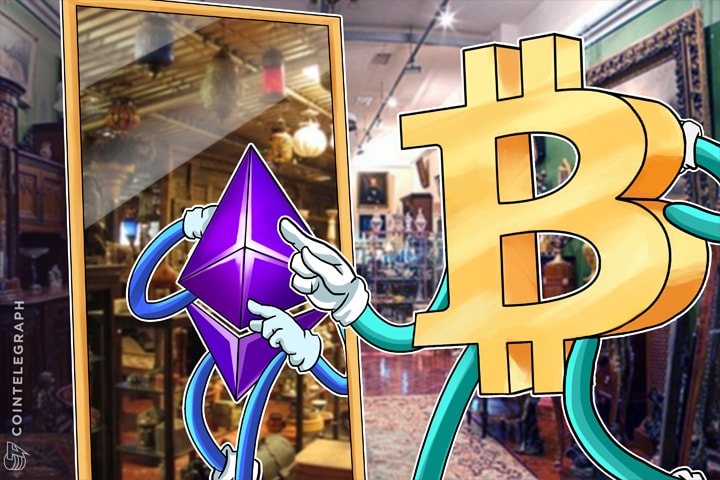Over the past few weeks, the price of Ethereum’s Ether and Bitcoin price have consistently demonstrated inverse correlation.
As shown in the comparison chart below, a tight correlation between the performance of Ether and Bitcoin is evident. When Bitcoin rises in value, Ether price declines and vice versa.
$ETH and $BTC. They are not always inversely correlated. But right now they are. pic.twitter.com/njO7FPOQjY
— ₿itsFromHΞavΞn (@BitsFromHeaven) April 4, 2017
Difference
The Ethereum and Bitcoin network are completely different from each other in terms of philosophy, structure, monetary policy and vision. Bitcoin was developed to operate as digital gold and as a cash system. Ethereum, in contrast,was introduced to supplement decentralized applications. Essentially, Bitcoin is a digital currency and Ethereum is a decentralized network of applications.
Many Bitcoin and security experts including Andreas Antonopoulos commented on the comparison between Ethereum and Bitcoin in the past. In 2016, Antonopoulos wrote:
“Stop calling ethereum "the bitcoin rival". No one in ethereum or bitcoin believes it is a rival. Post-national currencies are not zero-sum.”
In a way, Ethereum developers and companies depend on the Bitcoin network for its stability and security. Ethereum prioritizes flexibility and functionality to provide a more efficient ecosystem for developers, while Bitcoin operates as a better store of value.
For instance, Blockchain startups that often engage in Initial Coin Offerings (ICOs) normally hedge their funds raised in Ether to Bitcoin for increased stability. Since Bitcoin has a substantially lower volatility rate, startups prefer to maintain their funds in Bitcoin via cold storage or hardware wallets such as Trezor.
Bitcoin scalability issues
Recently, as the Bitcoin community struggled to come to a consensus on which solution to activate to scale the Bitcoin network, some users migrated over to the Ethereum network. Some analysts including Social Minds founder and Reality Keys developer Edmund Edgar went as far as to describe Ether as a viable alternative payment method to Bitcoin due to its fixed transaction fees.
In Ethereum, transaction fees are called gas. For users to initiate smart contracts or send transactions, they are required to spend a certain amount of gas. According to Edgar, this transaction fee for Ethereum transactions is fixed and does not alter depending on the size of the transaction, unlike Bitcoin.
Edgar explains:
“A user’s account can be modeled as… an account. You can have a single balance, and it doesn’t matter how many payments it took to get you that balance. Wallets are simpler, less surprising stuff happens, and fees are easier to predict and explain. All payments cost the same, regardless of where the funds came from.”
ARK Invest’s crypto-focused product lead Chris Burniske further noted that traders tend to switch back and forth between Bitcoin and Ether, depending on the performance of the two markets.
3/ "Correlation != Causation" & these are short time periods for data, but it does suggest traders are swinging back & forth b/w $BTC & $ETH
— Chris Burniske (@ARKblockchain) April 5, 2017
ETH/ BTC pair trade
Increasing interest of Bitcoin users, developers and businesses in Ethereum is demonstrated in the global exchange market of Ethereum. The ETH to BTC pair accounts for over 50 percent of all Ethereum trading.
